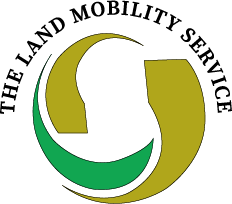
How can we form Partnerships?
Family partnerships are an excellent mechanism by which to operate the family farm. The partnership is given permission to use the land and other assets. Some of the benefits of partnership arrangements include:
- Partnerships are an excellent progressive arrangement, keeping both younger and older generations involved.
- Partnerships can have positive EU payment benefits including Young Trained Farmer Top Ups, and higher rates and thresholds for TAMS.
- Partnerships can offer tax saving opportunities through stock relief and personnel allowances.
- The partnership helps to define roles, develop a farm plan, and determine income split.
- Partnerships can facilitate and safeguard succession management.
Formalised partnerships can be registered with the Department of Agriculture, giving full recognition to the arrangement and the parties involved.
Other Partnership Structures
Outside the family Registered Partnerships, Financial Partnerships and Share Farming Arrangements all offer options for collaboration between two farmers. The Land Mobility Service helps facilitate all such arrangements.
Partnerships can also work well outside the family, the Irish models are based on the French GAEC. The best known Irish model, The Milk Production Partnership, complies with milk quota regulations however this model provides a template for any farm partnership.
Registered partnerships can be tax efficient with individual reliefs allowable and capable of being carried in (e.g. stock relief, income averaging and unused capital allowances). Revenue and the Dept. of Agriculture have a favourable approach towards registered farm partnerships. The key being that each farmer in the arrangement should be treated no less favourably than a farmer farming on his/her own. All qualifying farmers in a registered partnership are each treated as individuals for tax and SFP. Stated government policy is that all parties are treated separately for EU and government support.
Partnerships are capable of dealing with a wide range of scenarios and multiple partners, including companies. To safeguard land title, land is licensed by the land owner for use by the partnership and a clear cessation mechanism can be provided for in the agreement.
Partnership offers an ideal mechanism for dairy expansion post quota, for example a dairy farmer and non dairy farmer neighbour. In simple terms the dairy farmer can provide the milking facilities and dairy expertise with the neighbour providing the extra land and labour for expansion.
Partnerships, as agreements can be customised to differing needs offering versatility and flexibility provided a proper planning process is followed. Properly formulated partnerships have proven very successful in Ireland, key to this is:
- Define the activities to be included in (and excluded from) the partnership
- Specify the parties to the partnership
- Define roles, responsibilities and limits
- Define profit sharing ratios
- Specify duration and dissolution mechanism
- Detail resources and capital being provided by all parties
- Establishing bank accounts and herd number
- Detail how accounts are to be prepared and the make up of the capital account
The planning process is very important. The business must be separated from the partner’s private lives. It is advisable to have a clear comprehensive agreement. A specimen partnership agreement has been developed by Teagasc in conjunction with the Law Society. Revenue have taxation booklets for Milk Production Partnerships.
What are the benefits of Partnerships?
These planning steps would also apply to establishing a company. Partnerships have a number of advantages over the company structure namely
- Each partner has an equal say
- Dissolution can be defined and simple
- More favourable tax treatment of stock relief, unused capital allowances, income averaging, or VAT coming into the partnership. Revenue treat each partner separately
- Each partner is a farmer in his/her own right
Partnerships are more compatible with the family farm concept than would be the case for a corporate structure.
Read more detail from The Land Mobility Service 2023 Booklet >>

